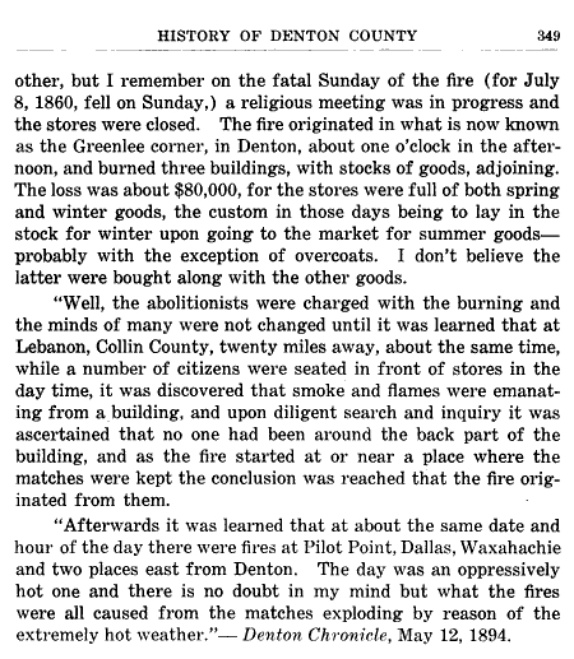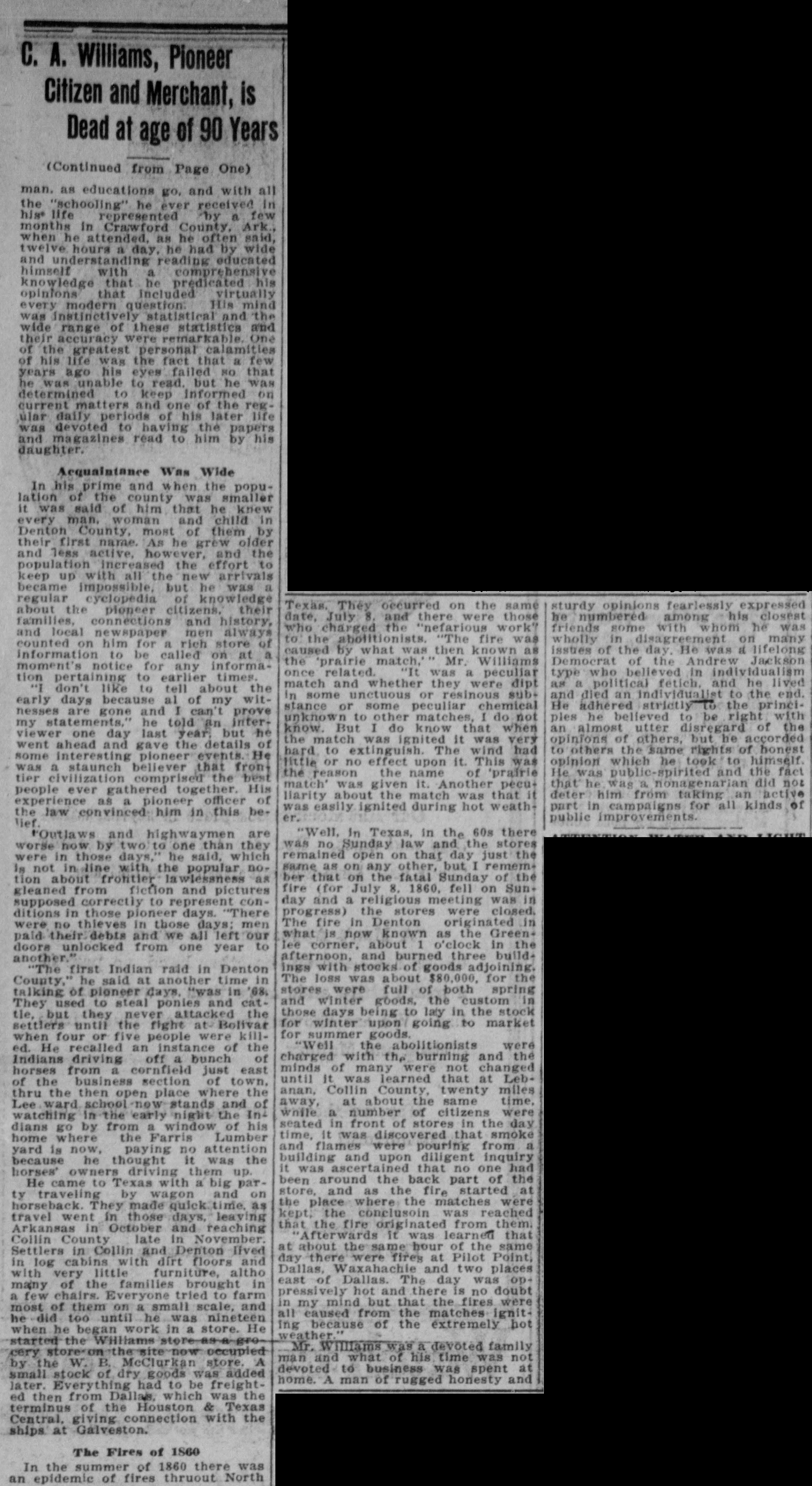Charles Alexander Williams was Sheriff of Denton County twice, during 1856-57 and 1866-67. He is at left in the photo below, along with other early Denton County sheriffs. C. A. Williams was a longtime resident and respected town elder known for deducing and arguing the true cause of the July 1860 fires across Texas, as his obituary at bottom here recounts. These fires led to widespread lynchings and other attacks against slaves, free blacks, abolitionists and others--but not in Denton. This was because C. A. Williams reasoned beyond a doubt that the fires were in fact the result of new matches called prairie matches spontaneously catching fire in the extreme heat of that month.
 Six Denton County Sheriffs of yesteryear, Front row, L to R: Charles Alexander Williams, 1856-57, 1866-67; Christopher Daugherty, 1860-62; William Egan, 1869-78; Robert Hopkins, 1878-82. [Caption courtesy of Tom Reedy, Public Information Officer, Denton County Sheriff's Office. Detail of photo from: Former Sheriffs of Denton County, photograph, 1905; (texashistory.unt.edu/ark:/67531/metapth12297/m1/1/: accessed January 1, 2017), University of North Texas Libraries, The Portal to Texas History, texashistory.unt.edu; crediting Denton Public Library.
Six Denton County Sheriffs of yesteryear, Front row, L to R: Charles Alexander Williams, 1856-57, 1866-67; Christopher Daugherty, 1860-62; William Egan, 1869-78; Robert Hopkins, 1878-82. [Caption courtesy of Tom Reedy, Public Information Officer, Denton County Sheriff's Office. Detail of photo from: Former Sheriffs of Denton County, photograph, 1905; (texashistory.unt.edu/ark:/67531/metapth12297/m1/1/: accessed January 1, 2017), University of North Texas Libraries, The Portal to Texas History, texashistory.unt.edu; crediting Denton Public Library.
At that time Texas, like the rest of the US, was in a tumult over the future of slavery and the nation. The so-called Texas Insurrection of 1860 may have been an insurrection by pro-slavery forces more than anything else. Like the southern states to the east, Texas had slaveholders who feared slave rebellions, which had already happened in other states. Their operations depended on keeping Black people in a state of fear and white people in a state of racist superiority. "By 1860, Texas had 182,921 blacks, or 30% of the total population, of whom only 355 were free." (http://www.city-data.com/states/Texas-Ethnic-groups.html)
The article below from the Denton Chronicle, reproduced on pages 348-349 in Edmond Franklin Bates's History and Reminiscences of Denton County (McNitzky Printing Company, 1918) tells this story. The book and this article are freely available at: http://books.google.com/books?id=U8kBAAAAMAAJ
the article continues:
An interesting question for today is to what extent local history has accepted this reasoning. For instance, in 1949 a peer-reviewed regional history journal published a detailed article on the so-called Insurrection of 1860 without mentioning the matches as a cause. This article describes pro-slavery whites more than ready to react violently, with or without provocation (Williams W. White, "The Texas Slave Insurrection of 1860", Southwestern Historical Quarterly vol. 52 no. 9, Januuary 1949, p 259-285, available at http://www.jstor.org/stable/30235055?origin=JSTOR-pdf.) But the 1918 History of Denton County cited above describes the matches as the proven explanation for the fires.
There were indeed rebellious African Americans in Texas, and linkages with Mexicans, and Native Americans. Vincent Harding offers some discussion of events in Texas at this time in There is a River: the Black Struggle for Freedom in America (Houghton Mifflin Harcourt, 1993), searchable online at http://books.google.com/books?id=ppCEJb_lZh0C&lpg.
The 1922 obituary of C. A. Williams, below, told the story of the prairie matches as well.
See also






